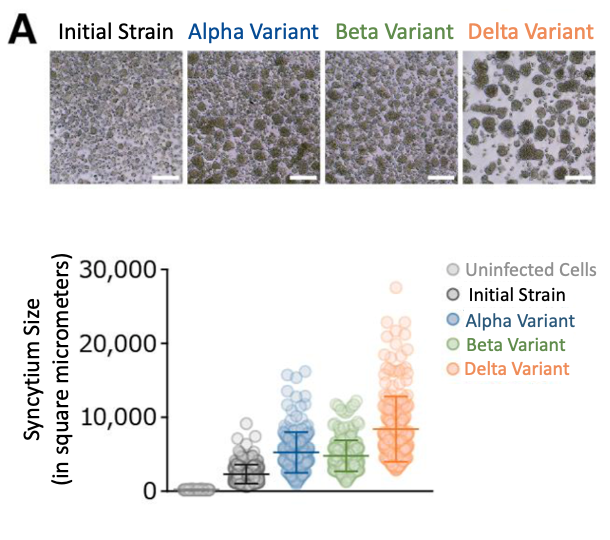A large, multi-institute team of researchers, led by Prof. Kei Sato of The Genotype to Phenotype Japan Consortium and including ICReDD PI Shinya Tanaka and members of his lab, recently published results in the journal Nature demonstrating that the B.1.617.2 (“Delta”) variant of the SARS-CoV-2 (COVID19) virus showed increased pathogenicity and increased fusogenicity when compared to other variants of concern (VOCs) and the original strain.
The P681R mutation, which in this study was identified as a hallmark of the B.1.617 lineages, was found to result in greater fusogenicity of the virus, which is the tendency for the virus to fuse and clump together. This greater tendency to clump has been shown to lead to more severe symptoms for other viruses. These results show the P681R mutation is partly contributing to the greater severity of the Delta variant. This result helps to explain previously reported evidence that suggested the Delta variant results in increased hospitalizations.
This work was published in Nature on Nov. 25th, 2021.


